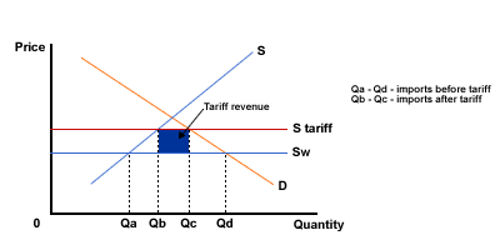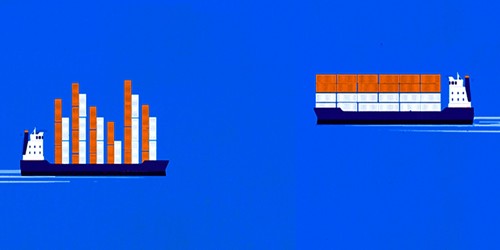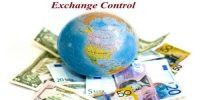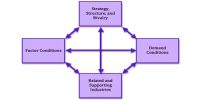Arguments against Protectionism
Protectionism is the theory or practice of protecting a country’s home industries from overseas competition by taxing imports. Although protection is often seen as a convenient political solution for countries (and has been extensively used even in recent years), it does also have a number of problems. This means that it is not always the best solution for a country.
These problems include:
(a) Downward multiplier effects – if a country successfully protects against imports, this will reduce the level of imports. However, one country’s imports are another country’s exports and this reduction in exports will lead to a multiplier effect. This may even reduce demand for exports from the country that raised the protectionist measures in the first place but will certainly reduce world output.
(b) Retaliation – any protectionist measure tends to be instantly met with some form of retaliation. This will tend to mean that any success in protecting against imports leads to a fall in exports when the retaliation starts to bite. There is the danger that one country imposing import controls will lead to retaliatory action by another.
(c) Costs – tariffs (and other protectionist measures) tend to lead to a cost on society. If we look at the tariff diagram in Figure below, we can see that the tariff leads to a reduction in imports. Some of the benefits from the reduced imports are passed to domestic firms in the form of higher prices and the government in the form of revenue, but the triangles either side of the blue shaded area represent a welfare cost to society. Consumers will be paying higher prices for many of the goods and services they consume.

(d) The inefficiency of resource allocation – the imposition of tariffs or other protection may not be the best solution. Firms may be able to shelter behind the tariff wall and remain inefficient. They may not have an incentive to reduce costs and become fully globally competitive if they believe that the tariffs will continue. This will be true also where infant industries are protected. If the tariffs remain in the long-term, the infant industry may never ‘grow-up’. Firms operating with higher costs may be unable to achieve export competitiveness. In short, resources will not be allocated to their most efficient uses.
(e) Higher Prices for Consumers: Import tariffs, in particular, push up prices for consumers and insulate inefficient domestic sectors from genuine competition. They penalize foreign producers and encourage an inefficient allocation of resources both domestically and globally.
(f) Bureaucracy – many protectionist measures are very bureaucratic to enforce. This is likely to reduce choice for domestic consumers and perhaps lead to possible corruption and other administrative costs. These will not be beneficial for the economy.
However, totally free trade may also produce extra costs to the economy and to society, for instance:
- Adjustment costs – changes in proportional advantage might necessitate adjustments in the formation of industry, which might take some time and cause temporary increases in unemployment.
- Environmental costs – free trade may encourage firms to transfer to countries, where environmental and other regulations are more comfortable and observance costs are lower. Although this might amplify producers’ profits, it may guide to long-term environmental problems.
It creates obstacles or barriers to free international trade. Due to high tariffs forced by other countries, a country is not allowed to manufacture goods in which it has cost advantages. So, protection reduces world production and consumption of globally traded goods.















